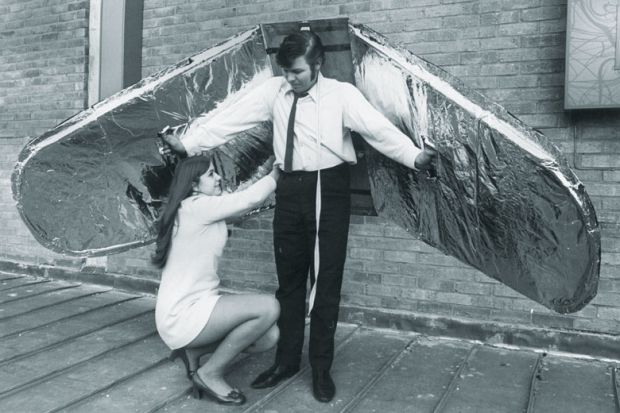High-performing students are “groomed” for PhDs by academics who recklessly assume that good marks equip people for doctoral studies, higher education’s self-proclaimed “thesis whisperer” has warned.
Inger Mewburn, director of researcher development at the Australian National University, told Times Higher Education that would-be supervisors consigned people to a life of “trauma” when they ignored evidence about a lack of correlation between earlier results and the prospects of PhD success.
She said that universities should recruit more carefully as Covid-19 laid waste to academic job prospects. “Anyone you admit into a PhD should be able to pass,” she said. “Illness, accidents, life problems permitting, that person should be able to finish. You shouldn’t admit anyone who can’t, because there’s too much hanging on it.”
Dr Mewburn has counselled not only her own students but also the 100,000-plus followers worldwide who have paid more than 9 million visits to her Thesis Whisperer blog. She started it a decade ago, worried that too many PhD candidates were suffering self-doubt in isolation – unaware that many of their peers felt exactly the same way.
Dr Mewburn said “magical thinking” was partly to blame, with students assuming that their past successes would propel them through doctoral studies and early career academia, despite being forewarned about the scant job prospects. But the unrealistic expectations “didn’t come from nowhere”, she insisted.
“Their thinking is heavily influenced by the thinking of people around them. They’ve believed people they shouldn’t have believed. When they come against the cold hard reality, they feel like they’ve been sold defective goods.”
She said that PhD recruiters “groomed” the sorts of students “who go and talk to their lecturers at the end of class. They get drawn into doing various bits and bobs of work. They get included; they get excited; they get told ‘you’re one of us’.
“I’ve seen this time and time again. I see it now. What’s driving me nuts during this pandemic is that I still hear supervisors saying to their candidates, ‘you always knew it was tough; you’re just going to have to tough it out’ – which is not true. This moment in time is a complete break with anything we’ve known previously. But they’re still saying to their students, ‘you’re great; you’re the best’.”
Dr Mewburn said that careful consideration should determine who received the “rare and precious privilege” of doing a PhD. Instead, recruiters awarded places on the strength of grade point averages, which were not reliable indicators of future success.
“You have to be academically smart enough, but there’s so much more to it than that. But we take the people who have achieved highly in a course with the assumption that they’ll do well in a PhD.”
That assumption was demonstrably false, she said, citing US researcher Barbara Lovitts’ finding that students who do well in coursework often fare poorly in independent research. “We’re actually ignoring the evidence,” Dr Mewburn said.
“[We should recruit] people who are self-starters [and] good networkers, who can deal with failure and uncertainty; people who know when to break rules and when to observe them. These are qualities that people develop in the workplace and through life. We should interview them like they’re workers as well as look at their academic success.”
The pandemic demanded a new approach, she added. “We should be seizing the moment to change.”
POSTSCRIPT:
Print headline: ‘Thesis whisperer’ pans ‘grooming’ of ill-suited students for doctorates
Register to continue
Why register?
- Registration is free and only takes a moment
- Once registered, you can read 3 articles a month
- Sign up for our newsletter
Subscribe
Or subscribe for unlimited access to:
- Unlimited access to news, views, insights & reviews
- Digital editions
- Digital access to THE’s university and college rankings analysis
Already registered or a current subscriber? Login










